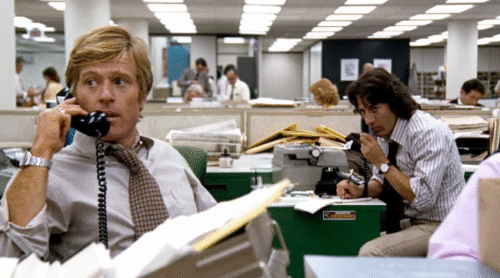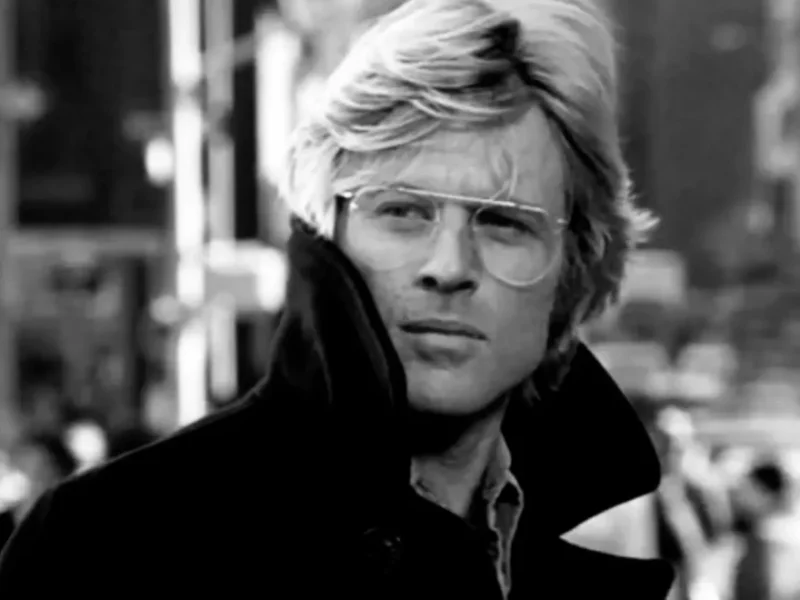The news was painful and unexpected, as is often the case with all the deaths of those who have dedicated their lives to creation and art: Robert Redford, the great actor who hated his masculine beauty for fear of being pigeonholed only in heartthrob roles, has died.
The blond actor with a calm smile and intense gaze passed away at the age of 89, in his sleep this Tuesday, September 16th, at his home in Utah, United States, leaving behind more than six decades of film, theater, environmental activism, and a cultural legacy that crossed borders.
Robert Redford was born in Santa Monica in 1936, the son of a middle-class family. From a young age, he displayed artistic sensitivity and a restless spirit. He studied at the University of Colorado, where he began his career in theater. Although destiny soon led him to New York, the theater capital of the United States.
On Broadway, Redford debuted in plays like Tall Story (1959) and The Highest Tree (1960), but the piece that truly launched him was Barefoot in the Park (1963), a romantic comedy by Neil Simon. There, he played a young, newlywed lawyer, a role he would later reprise in film alongside Jane Fonda.
The leap to Hollywood was inevitable. After small television roles, Redford burst onto the big screen with War Hunt (1962). However, his breakthrough came in 1969 with Butch Cassidy and the Sundance Kid, where he shared the bill with Paul Newman. This duo marked cinematic history: charisma, humor, tragedy, camaraderie.
Two years later, he filmed Jeremiah Johnson (1972), in which he played a solitary man who ventures into the mountains. It was the first time that his love of nature became a central theme in his films. That same year, he starred in The Candidate, a political satire that showed he was not only a pretty fase. But also a performer capable of exposing the intricacies of power.

In 1973, his name was etched in two iconic films: The Way We Were (opposite Barbra Streisand) and The Sting, again with Paul Newman. The latter won the Oscar for Best Picture and cemented Redford’s position as a respected box-office actor.
Three years later, with All the President’s Men (1976), he played journalist Bob Woodward in the investigation of the Watergate scandal. It was more than a film: it became a lesson in journalistic ethics and a symbol of democratic resistance in the United States of America.
In 1980, Redford launched his directorial career with Ordinary People. The film was a resounding success and earned him the Oscar for Best Director. It was an intimate drama, without fireworks, that revealed his sensitivity for working with actors and portraying deep family pain.
Later, he directed The Milagro Beanfield War (1988), a dramatic comedy about farmers resisting power. A River Runs Through It (1992), starring a young Brad Pitt and canvas-like Montana landscapes. And The Horse Whisperer (1998), in which he also starred, exploring the connection between humans and horses.
If anything immortalizes Redford beyond the screen, it’s the Sundance Film Festival, founded in 1978 in Utah. What began as a haven for alternative filmmakers became the most prestigious independent film festival in the world.

Thanks to Sundance, audiences were introduced to Quentin Tarantino, Steven Soderbergh, Darren Aronofsky, Kelly Reichardt, among others. Redford not only lent his name, but also put his heart and soul into giving visibility to new actors.
Already in the 1990s and 2000s, Redford alternated roles as an actor and director. He appeared in Indecent Proposal (1993), Spy Game (2001) alongside Brad Pitt, An Unfinished Life (2005), and All Is Lost (2013), a near-silent film about an elderly sailor struggling to survive in the middle of the ocean.
In 2018, he announced his retirement from acting with The Old Man & the Gun, playing a veteran thief who refuses to abandon his craft. It was his swansong: a twilight, elegant film, in tune with his own life.
Redford is gone, but he leaves behind works, films, and a spirit that spans generations. His story shows that an actor can be more than a heartthrob, that a director can be more than a technician, and that a festival can change the way we see cinema.
We Cubans had the opportunity to meet him in person when he attended the Havana International Latin American Film Festival, and in January 2004, he traveled to Havana for the second time to present “The Motorcycle Diaries,” a film by Brazilian director Walter Salles, which Redford produced.
Redford was the most internationally acclaimed American actor of his time, and his film work and environmental advocacy made him a figure who has only recently traveled into eternity.
Today, the great actor who hated being just a great movie star has passed away.
- When eating pizza doesn’t lead to Rome - 18 de January de 2026
- The Fright of Tuesday 13th: Between Religion, History, and Tradition - 13 de January de 2026
- The Pictorial World of the Gelpi Brothers - 12 de January de 2026

